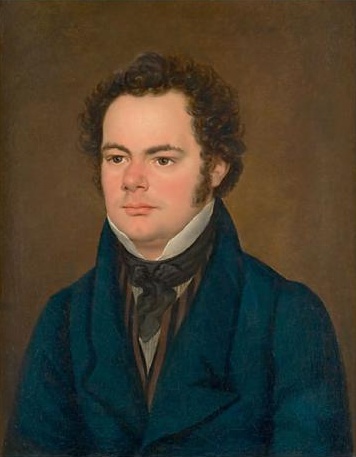|
Smile! (Vitas Album)
Smile! (Улыбнись!, Ulybnis!) is a Russian album by Vitas (Витас), released in 2002. Several songs from this album featured in his ''Philosophy of Miracle'' concert programme, whose performance at the Kremlin earned Vitas a record as the youngest artist to perform a solo concert at the State Kremlin Palace;WikiMusicGuide a DVD of this concert was later released. The title track won the Russian Golden Gramophone and People's Hit awards. "Good-bye" was released as a single, which included 5 different mixes of the song, the tracks "Ave Maria" and "Byelorussia", and the music video for "Opera #1" from his previous album ''''. "Good-bye" is notable for Vitas' extre ... [...More Info...] [...Related Items...] OR: [Wikipedia] [Google] [Baidu] |
Vitas
Vitaliy Vladasovich Grachev (russian: Виталий Владасович Грачёв; uk, Віталій Владасович Грачов, Vitaliy Vladasovych Hrachov; born 19 February 1979), known professionally as Vitas ( rus, Витас, , ˈvʲitəs; stylised as VITAS), is a Latvian-born Russian singer, songwriter and actor. Vitas is known for his unique falsetto and his eclectic musical style, which incorporates elements of operatic pop, techno, dance, classical, jazz, and folk. Though somewhat debated, it is said that he has a vocal range of 7 octaves. Having achieved prominence through Russian television in the early 2000s, Vitas crossed into Asian markets in 2005. Much of his recognition outside Russia and Asia came in the 2010s, when songs such as "Opera #2" and "The 7th Element" (both from his 2001 debut album '' Philosophy of Miracle'') and "Smile!" (from his 2002 album of the same name) achieved viral success; the unusual music videos for "Opera #2" and "T ... [...More Info...] [...Related Items...] OR: [Wikipedia] [Google] [Baidu] |
Philosophy Of Miracle
''Philosophy of Miracle'' () is the debut album by Russian singer Vitas, released in May 10th 2001. It is sometimes translated as ''Philosophy of a Miracle'', ''Philosophy of Wonder'', or ''Wonders of Philosophy''. The album received widespread popularity in mid-2015 after "The 7th Element" (often memed as "Chum Drum Bedrum" and "Weird Russian Singer") and "Opera No. 2" gained popularity several years earlier. It has reportedly sold at least 3.5 million copies in China alone. All the songs were written or co-written by Vitas, with the exception of "Prelude" by Dmitri Plachkovsky. The album was recorded with many backing musicians including the Vienna Symphony Orchestra.Article source: Neon magazine issues 2 & 4, Feb-Mar 2001 (Russian) ''Neon'' () magazine described the album as "fresh, original, new and ... [...More Info...] [...Related Items...] OR: [Wikipedia] [Google] [Baidu] |
Mama (Vitas Album)
''Mama'' (''Мама'', sometimes translated ''Mother'' or ''Mom'') is a Russian language, Russian album by Vitas. It was released in October 3rd, 2003. Songs from this album featured heavily in the setlist of Vitas' extensive world tour ''Songs of My Mother'' (Песни моей мамы), premiered at the :ru:Государственный центральный концертный зал «Россия», State Central Concert Hall "Rossiya" in November 1st and November 2, 2nd, 2003, and performed at hundreds of venues in several countries from 2004 to 2006.Press release The opening track, ''The Star'' (''Звезда'') won a Russian People's HIT prize in 2003 and is one of Vitas' most popular songs worldwide. Like ''Opera No. 2'' (''Опера №2''), it is still a staple of Vitas' live performa ... [...More Info...] [...Related Items...] OR: [Wikipedia] [Google] [Baidu] |
Russian Language
Russian (russian: русский язык, russkij jazyk, link=no, ) is an East Slavic languages, East Slavic language mainly spoken in Russia. It is the First language, native language of the Russians, and belongs to the Indo-European languages, Indo-European language family. It is one of four living East Slavic languages, and is also a part of the larger Balto-Slavic languages. Besides Russia itself, Russian is an official language in Belarus, Kazakhstan, and Kyrgyzstan, and is used widely as a lingua franca throughout Ukraine, the Caucasus, Central Asia, and to some extent in the Baltic states. It was the De facto#National languages, ''de facto'' language of the former Soviet Union,1977 Soviet Constitution, Constitution and Fundamental Law of the Union of Soviet Socialist Republics, 1977: Section II, Chapter 6, Article 36 and continues to be used in public life with varying proficiency in all of the post-Soviet states. Russian has over 258 million total speakers worldwide. ... [...More Info...] [...Related Items...] OR: [Wikipedia] [Google] [Baidu] |
State Kremlin Palace
The State Kremlin Palace (russian: Государственный Кремлёвский Дворец), formerly and unofficially still better known as the Kremlin Palace of Congresses (Кремлёвский Дворец съездов), is a large modern building inside the Moscow Kremlin. History The building was built at the initiative of Nikita Khrushchev as a modern arena for Communist Party meetings. The building replaced several heritage buildings including the old neo-classical building of the State Armoury and some of the back corpuses of the Great Kremlin Palace. This, and that the architecture of the projected building contrasted with the historic milieu resulted in quite an uproar, particularly after other historic buildings of the Kremlin, such as the Chudov and Ascension cloisters, had already been replaced and laws by the mid-1950s ought to prevent demolishion of historic structures, making the construction in some ways illegal. The construction work started ... [...More Info...] [...Related Items...] OR: [Wikipedia] [Google] [Baidu] |
Ellens Dritter Gesang
"" ("", D. 839, Op. 52, No. 6, 1825), in English: "Ellen's Third Song", was composed by Franz Schubert in 1825 as part of his Op. 52, a setting of seven songs from Walter Scott's 1810 popular narrative poem ''The Lady of the Lake'', loosely translated into German. It is one of Schubert's most popular works. Beyond the song as originally composed by Schubert, it is often performed and recorded by many singers under the title "Ave Maria" (the Latin name of the prayer Hail Mary, and also the opening words and refrain of Ellen's song, a song which is itself a prayer to the Virgin Mary), in musically simplified arrangements and with various lyrics that commonly differ from the original context of the poem. It was arranged in three versions for piano by Franz Liszt. ''The Lady of the Lake'' and the "Ave Maria" The piece was composed as a setting of a song (verse XXIX from Canto Three) from Walter Scott's popular narrative poem ''The Lady of the Lake'', in a German translation by ( ... [...More Info...] [...Related Items...] OR: [Wikipedia] [Google] [Baidu] |
Franz Schubert
Franz Peter Schubert (; 31 January 179719 November 1828) was an Austrian composer of the late Classical and early Romantic eras. Despite his short lifetime, Schubert left behind a vast ''oeuvre'', including more than 600 secular vocal works (mainly lieder), seven complete symphonies, sacred music, opera Opera is a form of theatre in which music is a fundamental component and dramatic roles are taken by singers. Such a "work" (the literal translation of the Italian word "opera") is typically a collaboration between a composer and a libr ...s, incidental music, and a large body of piano and chamber music. His major works include "Erlkönig (Schubert), Erlkönig" (D. 328), the Trout Quintet, Piano Quintet in A major, D. 667 (''Trout Quintet''), the Symphony No. 8 (Schubert), Symphony No. 8 in B minor, D. 759 (''Unfinished Symphony''), the Symphony No. 9 (Schubert), "Great" Symphony No. 9 in C major, D. 944, the String Quintet (Schubert), String Quintet (D. 956), ... [...More Info...] [...Related Items...] OR: [Wikipedia] [Google] [Baidu] |
Alexandra Pakhmutova
Aleksandra Nikolayevna Pakhmutova (russian: Александра Николаевна Пахмутова ; born 9 November 1929) is a Soviet and Russian composer. She has remained one of the best-known figures in Soviet Union, Soviet and later Russian popular music since she first achieved fame in her homeland in the 1960s. She was awarded the People's Artist of the USSR in 1984. Biography She was born on November 9, 1929 in Beketovka (now a neighborhood in Volgograd), Russian Soviet Federative Socialist Republic, Russian SFSR, Soviet Union, and began playing the piano and composing music at an early age. She was admitted to the prestigious Moscow Conservatory and graduated in 1953. In 1956, she completed a post-graduate course led by composer Vissarion Shebalin. Her career is notable for her success in a range of different genres. She has composed pieces for the Orchestra, symphony orchestra (The Russian Suite, the concerto for the trumpet and the orchestra, the Youth Overtur ... [...More Info...] [...Related Items...] OR: [Wikipedia] [Google] [Baidu] |




